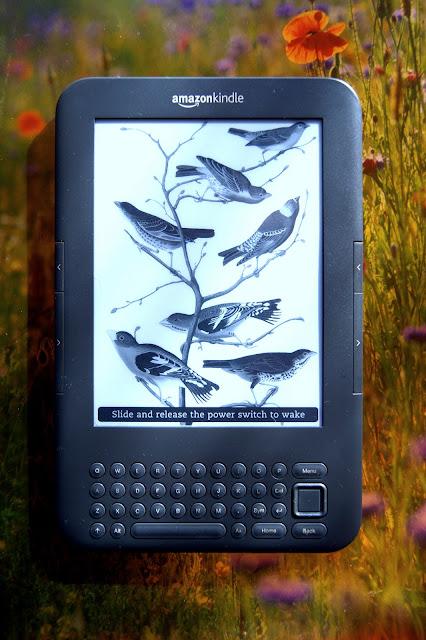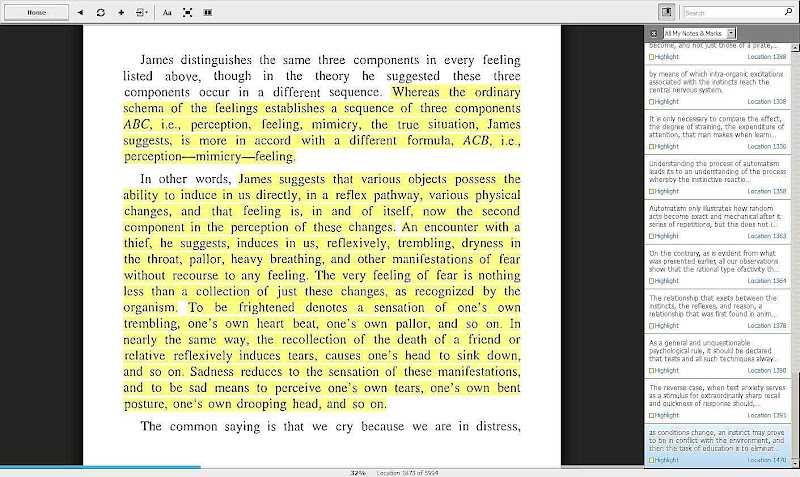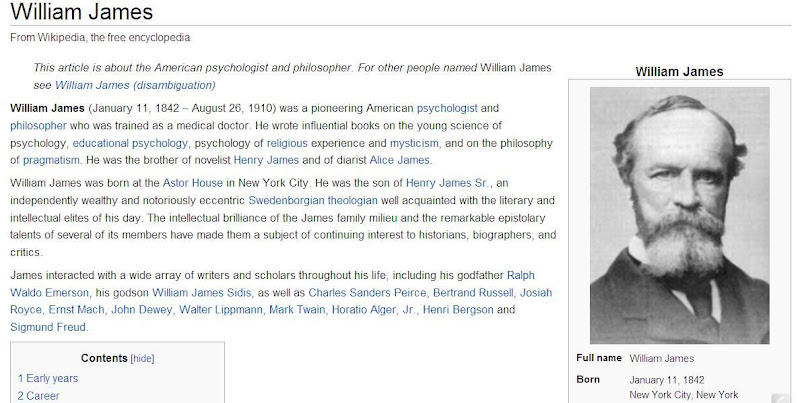
Unable to sleep I do this.
A mini-reflection on building a profile in Linked In.
Then get on with reflecting on my notes on Vygotsky.
The more I read, the greater my fascination. Vygotsky (translated) I find like H.G.Wells, also of the era, extraordinarily readable and current. A considerable amount of 'Educational Psychology rings true.
There is then at the confluence of a thought regarding Vygotsky as uploaded this image above; I am only saved from tears by what I was reading about Educational Psychology - understanding does this to you.
I am reminded of my late father who would have be 80 last week.
It was an innocent way to start a thought, how in less than a week a Kindle has taken over my book reading. Somewhere I have a Bird Book, signed by my late father, given to me on a whim on the ONLY visit he ever managed to our former home in Little Compton in the Cotswolds. For my father, everything was out of his way, but somehow the old A34 rather than the M40 into London brought him to our doorstep.
Of course, such as bird book is still required. The Kindle doesn't do colour - yet.
The thought produced a physical response.

(James, 1929)
Have we all had an encounter with a thief? If the image of the birds has me thinking about my father (conservationist, ornothologist, rubbish dad ... ) then the mention of the word 'thief' has me visualising a large screw-diver, the weapon of choice I picked up in the garage as someone tried to break in.
(By now we're living in a studio flat on Hamilton Terrace, though chronologically we've slid back a few years).
The text from Vygotsky has a resonance, and as I keep reading, a convincing argument in relation to education.
Work with these kinds of responses of the individual = success
My concern in relation to e-learning is how easy it is to duplicate what is inappropriate for a class of 30, but the authors (and their sponsors) believe is appropriate for 10,000.
Which in turn brings me to the week 2 activity in H800 of the MAODE
Online through the participation and collaboration of others in your immediate circle, which includes your tutor group, module cohort, wide MAODE colleagues and like-minded OU friends identified here, can your learning experience be personalised.
Ergo, we have a duty to comment, and only through writing ourselves, might we enable (or expose) our selves to comment in turn.
It does strike me that there is a 'layer' to the OU blogs-cum-threads that is missing: the MAODE or 'Education' blog platform.
As I've commented some thousand entries back, writing here is perhaps like doodling on a scroll of toilet paper in a public convenience.
Not the image or sentiment I wanted to conjure up, but a scroll, with perforations top and bottom comes to mind. What you do with this script if you've even read it is for your mind to decide.
REFERENCE
Williams, J (1929) Quoted in Educational Psychology, Vygotsky. Chapter 6.
Kindle doesn't give you a page number, presumable all e-Reader follow a similar convention. To cite do I give Location 1874?
Without knowing what I am doing or what it will achieve I search 'James' in the Kindle PC version, am about to click when a drop down offers me not a reference at the back of the 'book' but a link to Google or Wikipedia. I click Wikipedia and seamlessly, find myself here.
 (Wikipedia, accessed 17FEB2011)
(Wikipedia, accessed 17FEB2011)
And as we're talking about physical responses to things then this brought a shiver down my spine and matching the cliched 'reflexive' action my draw dropped.
I don't know what planet I'm living on any more.
No wonder I can't sleep, Kindle content isn't a soporific book, rather it's wired into your cerebellum where in an action not dissimilar to Ken Dodd's tickling stick, your mind is suitably agitated.

Ken Dodd and his tickling stick 
(I saw him live as a 10 year old, insanity. About as funny as my Granny sitting on a bowl of peaches).
P.S. Whether for personal, OU or the wider world, this demonstrates a value of blogging ... just start to write and let your mind unravel. And if you'll only get quiet for 90 minutes in the dead of night, that's what you'll have to do.